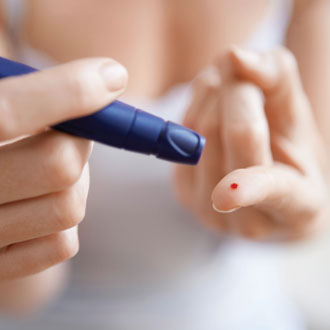Cutting inappropriate blood glucose self-monitoring ‘could save NHS £20m’

GPs in Tower Hamlets have managed to dramatically reduce inappropriate use of blood glucose self-monitoring kits among patients with type 2 diabetes, using a strategy they said could save the NHS over £20m in prescription costs if rolled out nationally.
The GPs implemented a specially designed set of local guidelines backed up by IT support and peer feedback, to cut back on prescribing of self-monitoring meters and test strips in people with type 2 diabetes who were not being treated with insulin and were not considered at risk of hypoglycaemia.
Although NICE guidelines do not recommend routine self-monitoring of blood glucose (SMBG) in non-insulin treatment groups, the practice is ‘widespread and increasing steadily’ in England, the researchers explained in a report in this month’s issue of the British Journal of General Practice.
The intervention lasted from 2010 to the end of 2013 and over the four years, use of SMBG reduced markedly from 43% to 16.5% in two CCGs that implemented the intervention, compared with a slight reduction from 56% to 47% at a control CCG that continued prescribing SMBG as before.
This led to a 5% reduction in total prescription costs for SMBG at the two intervention CCGs, compared with a 5% increase in the control CCG.
Although the researchers did not check whether patients’ blood glucose control had been maintained in the groups that cut back on SMBG, they noted that a previous study found no impact on HbA1c levels from a reduction in frequency of SMBG testing – and stressed that SMBG can cause significant harms in terms of quality of life, depression and anxiety.
They concluded: ‘This low-cost programme demonstrated a major reduction in unnecessary prescribing of SMBG, along with cost savings.
‘If replicated nationally this would avoid unnecessary testing in 340,000 people and prescribing costs that total £21.8 million.’
Br J Gen Pr 2015; available online 1 April 2015
Pulse July survey
Take our July 2025 survey to potentially win £1.000 worth of tokens

Visit Pulse Reference for details on 140 symptoms, including easily searchable symptoms and categories, offering you a free platform to check symptoms and receive potential diagnoses during consultations.











